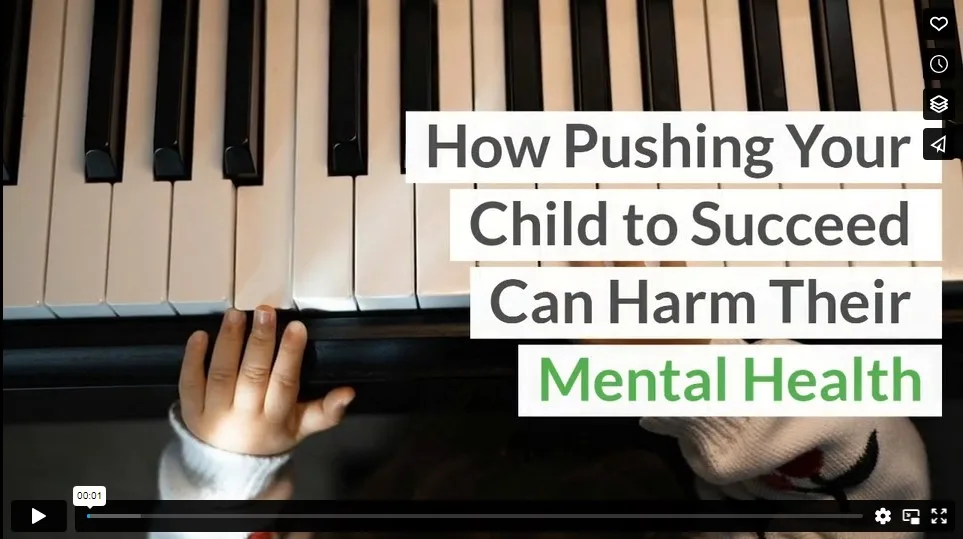As parents, it is natural to want the best for your children. With the rise in viral videos, televised talent competitions, and standardized academic testing it is easy to see there is always someone better. The competition to be the best is fierce.
While high expectations and encouraging your kids to do their best are healthy, too much pressure can be detrimental in the long run. There is a fine line between caring and caring too much about the success of your children.
How Much Pressure is Too Much?
Just as every parent has different approaches to encouraging their children, every kid will thrive under different amounts of stress. No child should feel like their future rests solely on their homework, piano recital, or athletic performance. Here are some indications that they are under too much pressure to perform well:
1. Attitude Issues: Your calm, well-behaved child starts to lose their temper at any minor problem. If they are feeling inadequate, their stress can translate into anger.
2. Trouble Sleeping: Fears often creep into children’s sleep. If they frequently wake, have nightmares, or toss and turn all night, they could be under too much stress. They could be staying up late to perfect their assignments and fulfill expectations, which will hamper their ability to think clearly. A loss of sleep is one way to ensure they will not perform well.
3. Secretive Behavior: If a child is under too much stress, the natural response is to shut everyone out. If kids stop sharing details about school, homework, and grades, they eliminate the fear of letting their parents down. Fear can drive children to resort to cheating to ensure their success. It can be as minor as catching glimpses of a friend’s homework answers or grow into paying someone to write essays for them.
4. Losing Interest: Living with the fear of letting parents down can cause children to be disinterested and lethargic. An indicator that your child is under too much pressure is when they lose interest in extracurricular activities they usually enjoy.
5. Physiologic Symptoms: Too much stress may begin to manifest itself as physical ailments. If your child is suddenly experiencing headaches, stomachaches, or diarrhea, it could be stress.
What Harm Can It Do?
Pressuring children to excel can damage their self-esteem. They will seek external validation for their achievements. Any criticism they receive can lead to a negative self-image, hindering their growth into well-adjusted adults. They may internalize that they will never be good enough, harming their identity formation. Low self-esteem and parental pressure can lead to self-harm and increased rates of mental illness.
Teens especially may turn to self-harming activities or develop eating disorders to help cope with the risk of disappointing their parents. The constant pressure can manifest as anxiety, depression, and other mental conditions. If your child exhibits warning signs of mental illnesses, have them speak with their doctor about treatment options. Talk therapy, medications, and alternative depression treatments are all worth exploring.
Children, especially athletes, are more likely to push through the pain if they deal with excessive parental and coach pressures to perform. They will play through the pain and ignore injuries, potentially causing permanent damage. On the flip side, if they lose their spot at the top, they may easily give up. They will lose the opportunity to sharpen their skills because they don’t see the point if they can’t be the best anymore.
Helping Your Children Thrive
It is crucial to create safe spaces for your children to flourish, celebrate their accomplishments, and even fail. Success is inevitable when you don’t teach children to fear failure. If you find yourself pushing your child past their comfort level, reevaluate why their success matters so much to you.
Set aside your feelings to allow your children to express theirs. Instead of worrying about disappointing you, you will encourage them by giving them space to express how they feel. Finally, focus on the process rather than the results. Praise children for their effort and trying their hardest instead of the awards. They will learn to enjoy the process instead of just the final product.
No one will ever fault you for wanting the best for your child. Sometimes the best thing to do is back off and allow them to experience some minor failures. They will gain some resilience and learn to appreciate their hard work even if it doesn’t always come with the accolades of success. By praising your children’s efforts instead of outcomes, you will ensure they are happy, healthy, and learning lifelong skills for success.
Video

